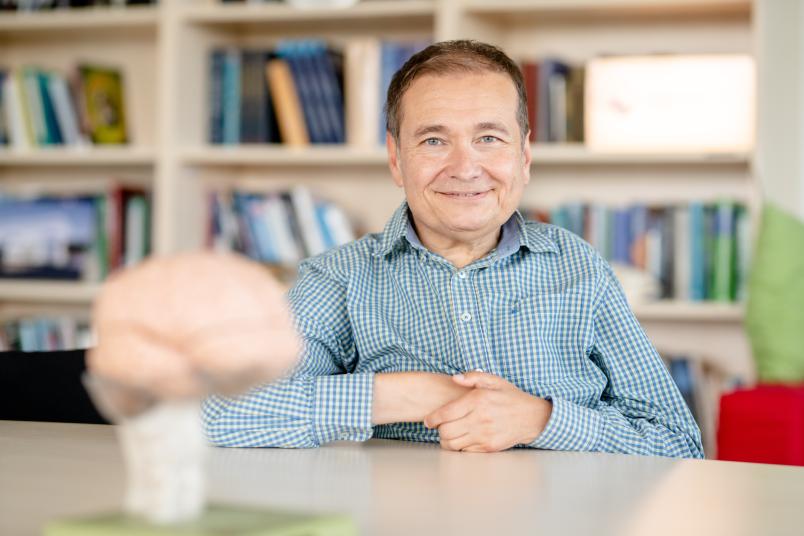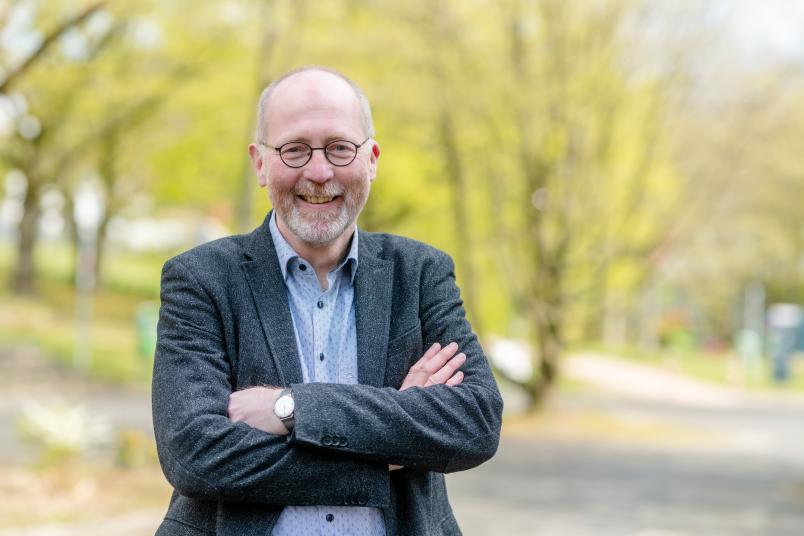Research funding
Two new ERC Advanced Grants
Biopsychologist Onur Güntürkün and philosopher Heinrich Wansing receive the coveted grant.
The brain of birds is completely different in structure than that of mammals. Professor Onur Güntürkün, biopsychologist at Ruhr-Universität Bochum (RUB), intends to find out how it works. Philosophy scholar Professor Heinrich Wansing tackles the challenge of contradictory logical approaches that demand a rigorous break with the Aristotelian tradition. Both researchers are funded by the European Research Council (ERC) with an Advanced Grant for the next five years. The ERC Advanced Grant is awarded to experienced top researchers who have achieved outstanding scientific output and wish to open up new research areas.
How birds think
Some birds, such as crows, manage to perform similar cognitive feats to chimpanzees with much smaller and differently structured brains. How do they do it? In the ERC project “Avian Mind”, Professor Onur Güntürkün intends to find answers to this question.
To this end, he is shifting his research focus away from the analysis of individual brain regions; instead, he is adopting the view that, depending on the thought process, changing networks of the forebrain hold the key to understanding cognition. To identify these networks, he will use a method developed last year in Bochum’s biopsychology department. It involves studying pigeons in the animal magnetic resonance tomograph at the RUB Neuroscience Research Center while they solve difficult cognitive tasks. This allows networks of mental processes to be identified with high spatial resolution.
Using the same method in combination with the analysis of individual nerve cells, he then plans to understand how consciousness and intentions to act are formed in the avian brain. Further experiments will also test the hypothesis that birds form memory in a different way than we do. “These studies will open the door to understanding how a differently structured but extremely capable brain is organised,” says the researcher.
Inconsistent logics
The 20th century saw the development of numerous systems of non-classical logic, including inconsistency-tolerant logics, all of which are typically subsystems or linguistic extensions of classical logic. However, logical systems exist that are radically different from classical logic in that they are not only inconsistency-tolerant, but non-trivial and contradictory. These logics are in striking contrast to the logical orthodoxy since Aristotle, who called the principle of non-contradiction the most certain of all principles. Non-trivial contradictory logics not only allow inconsistencies in theories, but contain provable contradictions.
Professor Heinrich Wansing’s ERC project Contradictory Logics: A Radical Challenge to Logical Orthodoxy meets the challenge of this rigorous break with the Aristotelian tradition by systematically investigating and developing contradictory logics. When already the underlying logic of a scientific theory exhibits provable contradictions, this requires a paradigm shift in our understanding of respectable logical systems and acceptable scientific theories. The goal of the project is to gain a deep understanding of certain non-trivial inconsistent logical systems.

